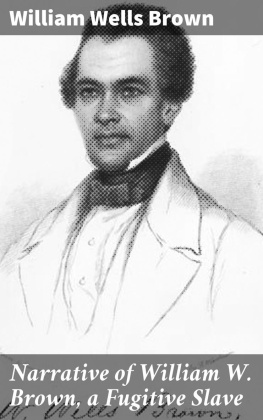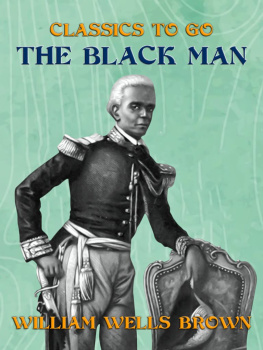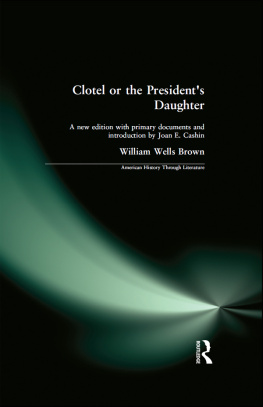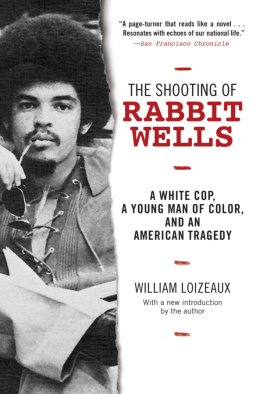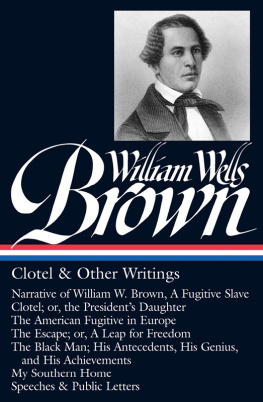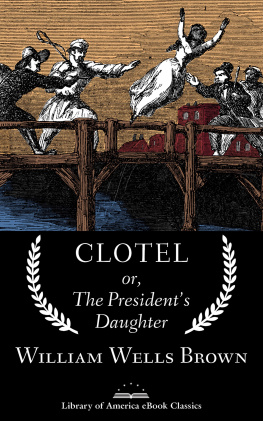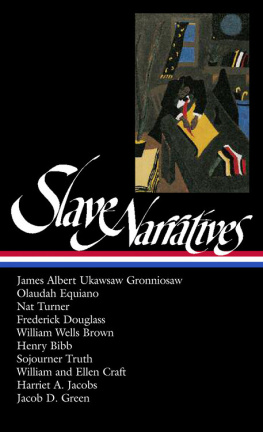The American Fugitive In Europe
Sketches Of Places And People Abroad
William Wells Brown
Contents:
The American Fugitive In Europe
Preface To The English Edition
Note To The American Edition
Memoir of the Author
Chapter I.
Chapter II.
Chapter III.
Chapter IV.
Chapter V.
The American Fugitive In Europe, W. W. Brown
Jazzybee Verlag Jrgen Beck
86450 Altenmnster, Loschberg 9
Germany
ISBN: 9783849643775
www.jazzybee-verlag.de
www.facebook.com/jazzybeeverlag
admin@jazzybee-verlag.de
The American Fugitive In Europe
Preface To The English Edition
WHILE I feel conscious that most of the contents of those Letters will be interesting chiefly to American readers, yet I may indulge the hope that the fact of their being the first production of a Fugitive Slave as a history of travels may carry with them novelty enough to secure for them, to some extent, the attention of the reading public of Great Britain. Most of the letters were written for the private perusal of a few personal friends in America; some were contributed to Fredrick Douglass' Paper, a journal published in the United States. In a printed circular sent some weeks since to some of my friends, asking subscriptions to this volume, I stated the reasons for its publication: these need not be repeated here. To those who so promptly and kindly responded to that appeal, I tender my most sincere thanks. It is with no little diffidence that I lay these letters before the public; for I am not blind to the fact that they must contain many errors; and to those who shall find fault with them on that account, it may not be too much for me to ask them kindly to remember that the author was a slave in one of the Southern States of America, until he had attained the age of twenty years; and that the education he has acquired was by his own exertions, he never having had a day's schooling in his life.
W. WELLS BROWN.
22 CECIL STREET, STRAND,
LONDON.
Note To The American Edition
During my sojourn abroad I found it advantageous to my purse to publish a book of travels, which I did under the title of "Three Years in Europe, or Places I have seen and People I have met." The work was reviewed by the ablest journals in Great Britain, and from their favorable criticisms I have been induced to offer it to the American public, with a dozen or more additional chapters.
W. W. B.
BOSTON, November, 1854.
Memoir of the Author
"Shall tongues be mute when deeds are wrought
Which well might shame extremest Hell?
Shall freemen lack the indignant thought?
Shall Mercy's bosom cease to swell?
Shall honor bleed?--shall Truth succumb?
Shall pen, and press, and soul be dumb?"
--Whittier.
WILLIAM WELLS BROWN, the subject of this narrative, was born a slave in Lexington, Kentucky, not far from the residence of the late Hon. Henry Clay. His mother was the slave of Dr. John Young. His father was a slaveholder, and, besides being a near relation of his master, was connected with the Wickliffe family, one of the oldest, wealthiest, and most aristocratic of the Kentucky planters. Dr. Young was the owner of forty or fifty slaves, whose chief employment was in cultivating tobacco, hemp, corn, and flax. The doctor removed from Lexington, when William was five or six years old, to the State of Missouri, and commenced farming in a beautiful and fertile valley, within a mile of the Missouri river.
Here the slaves were put to work under a harsh and cruel overseer, named Cook. A finer situation for a farm could not have been selected in the state. With a climate favorable to agriculture, and soil rich, the products came in abundance. At an early age William was separated from his mother, she being worked in the field and he as a servant in his masters medical department. When about ten years of age, the young slave's feelings were much hurt at hearing the cries of his mother while being flogged by the negro-driver for being a few minutes behind the other hands in reaching the field. He heard her cry, "O, pray! O, pray! O, pray!" These are the words which slaves generally utter when imploring mercy at the hands of their oppressors. The son heard it, though he was some way off. He heard the crack of the whip, and the groans of his poor mother. The cold chill ran over him, and he wept aloud; but he was a slave like his mother, and could render her no assistance, He was taught by the most bitter experience, that nothing could be more heart-rending than to see a dear and beloved mother or sister tortured by unfeeling men, and to hear her cries, and not to be able to render the least aid. When William was twelve years of age, his master left his farm and took up his residence near St. Louis. The doctor having more hands than he wanted for his own use, William was let out to a Mr. Freeland, an innkeeper. Here the young slave found himself in the hands of a most cruel and heartless master. Freeland was one of the real chivalry of the South; besides being himself a slaveholder, he was a horse-racer, cock-fighter, gambler, and, to crown the whole, an inveterate drunkard, What else but bad treatment could be expected from such a character? After enduring the tyrannical and inhuman usage of this man for five or six months, William resolved to stand it no longer, and therefore ran away, like other slaves who leave their masters, owing to severe treatment; and not knowing where to flee, the young fugitive went into the forest, a few miles from St. Louis. He had been in the woods but a short time, when he heard the barking and howling of dogs, and was soon satisfied that he was pursued by the negro-dogs; and, aware of their ferocious nature, the fugitive climbed a tree, to save himself from being torn to pieces. The hounds were soon at the trunk of the tree, and remained there, howling and barking, until those in whose charge they were came up. The slave was ordered down, tied, and taken home. Immediately on his arrival there, he was, as he expected, tied up in the smoke-house, and whipped till Freeland was satisfied, and then smoked with tobacco-stems. This the slaveholder called "Virginia play." After being well whipped and smoked, he was again set to work. William remained with this monster a few months longer, and was then let out to Elijah P. Lovejoy, who years after became the editor of an abolition newspaper, and was murdered at Alton, Illinois, by a mob of slaveholders from the adjoining State of Missouri. The system of letting out slaves is one among the worst of the evils of slavery. The man who hires a slave looks upon him in the same light as does the man who hires a horse for a limited period; he feels no interest in him, only to get the worth of his money. Not so with the man who owns the slave; he regards him as so much property, of which care should be taken. After being let out to a steamer as an under-steward, William was hired by James Walker, a slave-trader. Here the subject of our memoir was made superintendent of the gangs of slaves that were taken to the New Orleans market. In this capacity, William had opportunities, far greater than most slaves, of acquiring knowledge of the different phases of the "peculiar institution." Walker was a negro speculator, who was amassing a fortune by trading in the bones, blood and nerves, of God's children. The thought of such a traffic causes us to exclaim with the poet,



